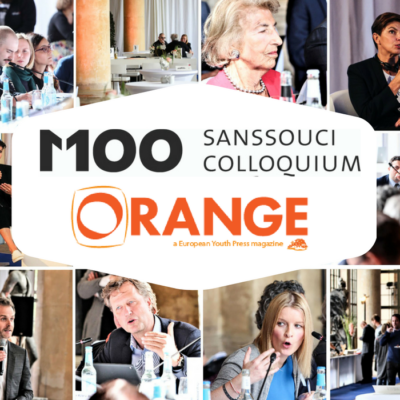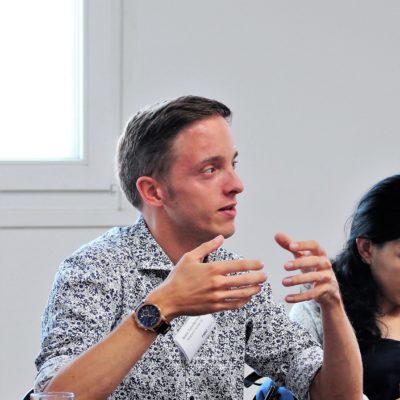By Marina Savchenko
They are independent, goal-oriented and open-minded. Generation Y grew up with the new technologies and knows everything about the digital world. They travel, learn languages, eat healthy organic food and are open for new adventures. Millennials are flexibel and multitasking in the workplace, they don’t want to wait for a manager to give them a task. They value education, work/life balance and independence. They have higher expectations and are entering the workface with ambition. How millennials will change the world of media?
Kirill, Irene and Niels are young media makers from different countries and share their thoughts about the future.
- Niels Timmermans, Belgium
- Irene Benedicto, Spain
- Kirill Filimonov, Russia
How will the new generation of young media makers change the traditional journalism?
Kirill: “I’d be hopeful that young media makers foster a more advocative kind of journalism which promotes social diversity and horizontal communication, rather than speaks to the traditional homogeneous ‘public’ from the privileged position of a media professional (with its traditional white, male and middle-class image). I wouldn’t expect change to come simply because of age. Sure, there are generational differences. That we are more at ease with digital platforms is obvious, but I’m less concerned with technical aspects here and would look at the broader political and cultural shifts instead. We have grown up in the post-9/11, post-financial crisis age: many of us have directly experienced the repercussions of neoliberal and xenophobic policies. At the same time, we have grown up in the world where being gay is no longer the reason for deprivation of basic civil rights (despite the global backlash), and feminism is trending again”.
Irene: “I think we have to bet on investigative journalism, that will provide the foundation to independent thinking, to confront what was taken as unquestionable. This is what sets an investigative reporter apart from those reproducing crossfire statements or doing unsubstantial advocacy for fair causes. This is why my priority is to continue advancing my knowledge from multiple points views, like we did at the M100YEJ workshop”
Niels: “Our generation needs to become the fact checking generation, the generation that makes its strongpoint of correct information.Young journalists will have the opportunity to report a story in a way that it reaches people more effectively. I believe that they will be more creative and will think more about the frames they use in their stories. Young journalists will need to gain the trust of people and I believe that creativity is one of the ways towards that trust”.
What challenges do you see for journalism in the Social Web?
Kirill: “My concern is that many in journalism, however concerned they may be with democratic practices, tend accept this logic of the social web to some extent. How many times have those working with the social web have been reminded by their colleagues that their content is not eye-catching enough for ‘the younger audience’? I agree that some adjustment to social media logic is necessary to keep a media project afloat. But what has to be a matter of constant reflection in the media community is how these tendencies in media development can enhance the participatory and empowering potential of media production, not make it even more antagonistic, shallow, mainstream, and profit-driven”.
Irene: “I see Fake News as a lucrative industry that institutions and Governments are failing to tackle yet. They are pursuing counterattack strategies, but this has to be complemented by the commitment of journalists. As young journalists, this is our chance to reflect on journalism ethics that seem to have been challenged by ‘online era’ as well as by the burst of populism in the U.S. and Europe”.
Niels: “Journalism has become a very stressful job because of the social web. News reaches journalists easier than ever, but at the same time they are sometimes obliged to be on 24/7. That’s something that can’t be expected from a journalist as a human being. We need to be aware that the balance between being online and being offline must be respected. Secondly, news can easily reach journalists, but fake news is a growing problem. In the future video content will be more manipulated than ever thanks to new technologies and journalists will need to be aware of that. More than ever journalists will need to do what they are paid for: fact checking. That will ask a lot of time, time that’s really precious in journalism”.
Kirill Filimonov
Kirill’s interests and activities revolve around research, journalism and political activism. Since 2016, he has worked as a PhD fellow and teacher in media and communication studies at Uppsala University, Sweden. With a professional background in political reporting in his native Russia, he is currently researching participation in activist media communities and occasionally writes for alternative media on issues related to progressive politics. In addition, he is one of two coordinators of the Stockholm collective of DiEM25 movement that aspires to promote progressive agenda in the European Union.
Irene Benedicto
Irene is a journalist with 7 years of experience working in communications. She combines writing at the online newspaper Publico.es with her job as a press officer at La Caixa Foundation, where she manages the communications strategy for the international development projects. She has previously worked as an international correspondent for Efe News (Agencia Efe), the largest news agency worldwide in the Spanish language, in Washington DC. She has also contributed to the European Union radio Euranet, in Brussels.
Niels Timmermans
Niels Timmermans is a Master’s student in International Relations and Diplomacy. He recently graduated as a Master’s in Journalism and has been working as a Communications Officer for city of Edegem and the European Parliament. As an active journalist for the youth press agency StampMedia (Antwerp) he has been published by both national and international media. Niels is specialized in social media and has a passion for (European) politics, LGBT topics, traveling and cycling. As a member of European Youth Press, he has taken part in various international conferences over the years.







